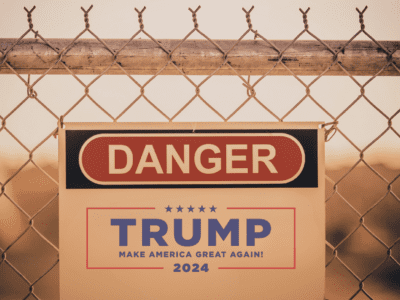Is Environmental Law Socialist?

Conservatives might be seeking a spiritual leader, organizing principle and fresh identity, but they at least seem to have settled on a favorite rhetorical ogre: socialism.
As in, Democrats are intent on forcing socialism on the “U.S.S.A” (as the bumper sticker says, under the words “Comrade Obama”).
This trend, as reported by the New York Times, raises the question of whether environmental law is “socialist” in some sense. No doubt many of Rush Limbaugh’s fans think so, but it’s hard to know what this allegation would mean.
It’s a bit ironic that the socialist label is emerging at a time when environmental advocates are prone to advocate market-based mechanisms like carbon taxes and cap-and-trade. Traditionally, socialism meant government ownership of the means of production. I’m not aware that anyone is arguing in favor of this as a solution to our environmental problems. It’s certainly not obvious that socialism in this sense has any connection, even remote, with environmentalism — government-owned industries don’t seem to have a better environmental track record than private firms.
Some environmentalists do have qualms about capitalism and view it as a driver of environmental harm, as in Gus Speth’s book, The Bridge at the Edge of the World. But Speth doesn’t seem to favor socialism as a solution. Of course, if socialist is just the flip side of laissez faire, then environmentalists are socialists — but so is the discipline of economics, which has long identified externalities like pollution as prime market failures.
Probably it is a mistake to look for intellectual content in the effort to resurrect forgotten political labels as terms of abuse. There is one sense, however, in which I suppose that the word could be used in a meaningful way in the environmental context. Many environmentalists, beginning with my colleague Joe Sax, have seen the public trust doctrine as a kind of model for thinking about environmental issues. (For instance, his book Playing Darts with a Rembrandt, explores ways in which our understanding of some kinds of private property interact with the conceptions of the public interest.) As a doctrinal matter, the public trust doctrine seems limited to water bodies and their boundaries, but environmentalists do tend to think that property right come with complementary obligations to respect the public interest. If as we are taught in law school, property is a “bundle of sticks,” then the public holds some of the sticks, and so even “private property” has its public aspect.
This recognition of the public aspect of “private” property is perhaps a very distant cousin of socialism, but it does have in common with socialism a willingness to view property as in part communal rather than inherently individual. In terms of property theory, the question is whether the essence of property is exclusivity, or whether property is just a name for complex institutions by which various people (not just the putative owner) can exercise control over some “thing.” Perhaps this public regarding view of property could be considered vaguely akin to socialism.
To paraphrase Patrick Henry, “if this be socialism, make the most of it!”






Reader Comments